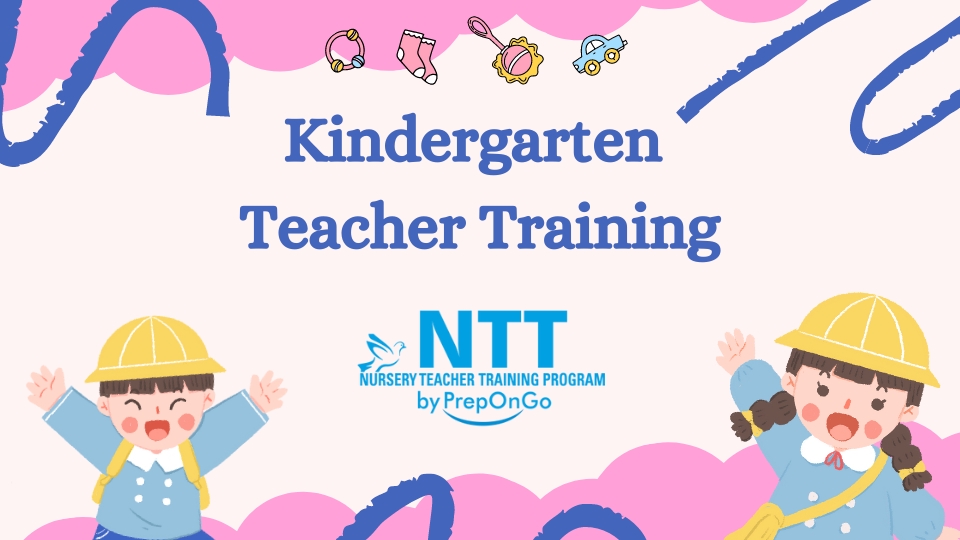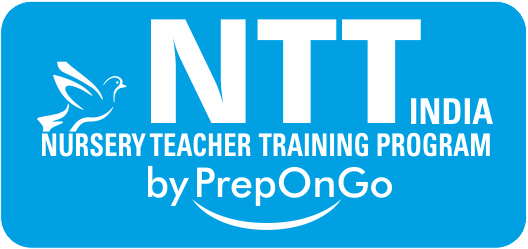Kindergarten Teacher Training

In the foundational years of a child’s life, their experiences, environment, and education play a critical role in shaping their development. One of the most significant factors in this stage is the influence of teachers, particularly those in kindergarten. To effectively guide young learners, kindergarten teacher training is essential in ensuring educators are well-equipped to nurture and inspire growth in these formative years.
Why is Kindergarten Teacher Training Important?
- Building a Strong FoundationKindergarten serves as a bridge between early childhood and formal education. It is where children begin to develop fundamental skills in language, math, socialization, and self-expression. Proper kindergarten teacher training ensures that educators have the necessary tools to create a strong foundation for lifelong learning. They can introduce key concepts in a way that is engaging, interactive, and appropriate for a child’s developmental level.
- Understanding Child DevelopmentEarly childhood is a period of rapid growth, both physically and mentally. Trained kindergarten teachers understand the developmental milestones that children go through and how to tailor teaching methods to support these changes. They are adept at recognizing individual learning styles and needs, which is crucial for ensuring that each child receives personalized attention and guidance.
- Classroom Management and Social SkillsIn addition to academic skills, kindergarten is where children learn to socialize, share, and collaborate with others. Teachers trained in classroom management create structured environments that encourage positive social interactions. They help children develop emotional regulation, empathy, and teamwork skills, all of which are important for their personal and social growth.
- Effective Teaching TechniquesA trained kindergarten teacher is well-versed in various pedagogical methods, such as play-based learning, experiential activities, and creative expression. These techniques foster curiosity and encourage children to explore the world around them. Training programs also teach educators how to make learning fun and interactive, helping children stay engaged and enthusiastic about school.
The Curriculum of Kindergarten Teacher Training
Kindergarten teacher training programs focus on multiple aspects of early childhood education, ensuring that teachers are well-rounded in their approach. Some of the key areas include:
- Child Psychology: Understanding cognitive, emotional, and social development to guide children’s learning processes.
- Early Literacy and Numeracy: Techniques for teaching basic reading, writing, and math skills in an age-appropriate way.
- Creative Arts and Physical Education: Encouraging creativity and physical development through activities like art, music, and movement.
- Inclusive Education: Training teachers to create environments where children with different needs and backgrounds can thrive.
- Health, Safety, and Nutrition: Ensuring children’s well-being through proper safety measures, healthy habits, and nutrition awareness.
Benefits for Children
Children who are taught by trained kindergarten teachers benefit in numerous ways:
- Enhanced Learning Outcomes: With skilled educators, children grasp core concepts more effectively, laying a strong academic foundation.
- Improved Social and Emotional Development: Trained teachers guide children in developing essential life skills like cooperation, sharing, and conflict resolution.
- Individualized Attention: Educators are able to recognize and cater to individual learning needs, fostering a supportive learning environment.
The Role of NTT India in Kindergarten Teacher Training
NTT India, a leading institution in teacher training, provides comprehensive programs that prepare educators for the challenges of early childhood education. Their focus on practical, hands-on training ensures that teachers are not only knowledgeable but also equipped to handle real-world classroom scenarios.
At NTT India, future teachers learn to engage children with innovative teaching methods and activities that promote holistic development. The curriculum emphasizes emotional intelligence, creativity, and effective communication, all of which are essential for kindergarten teachers. With this training, teachers are better positioned to shape the minds of young learners and guide them toward success.
Conclusion
The importance of kindergarten teacher training cannot be overstated. As the foundation of a child’s educational journey, kindergarten sets the stage for future learning and development. Proper training ensures that teachers are equipped with the skills and knowledge to create an environment where children can thrive academically, socially, and emotionally. Institutions like NTT India play a pivotal role in shaping qualified kindergarten teachers who make a lasting impact on the lives of their students.
